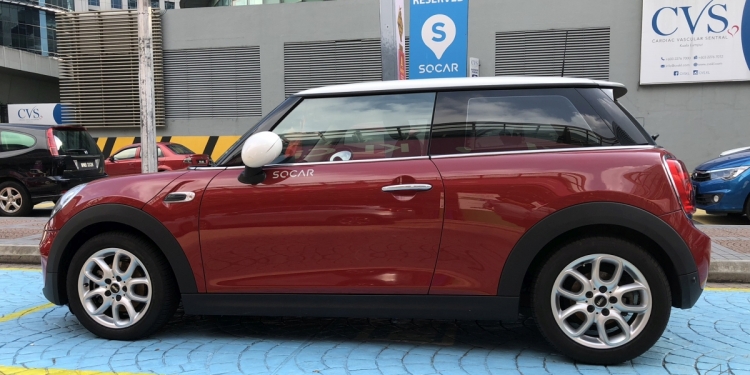If you’ve used car sharing platforms such as Socar and GoCar, you might have faced the unfortunate experience of getting a vehicle in bad condition. Personally, I’ve gotten vehicles smelling like an ashtray and there were rubbish left behind by the previous user. Such behaviour just ruins the car sharing experience and now Bosch has an Internet-of-Things (IoT) solution to help keep car sharing vehicles in impeccable condition.
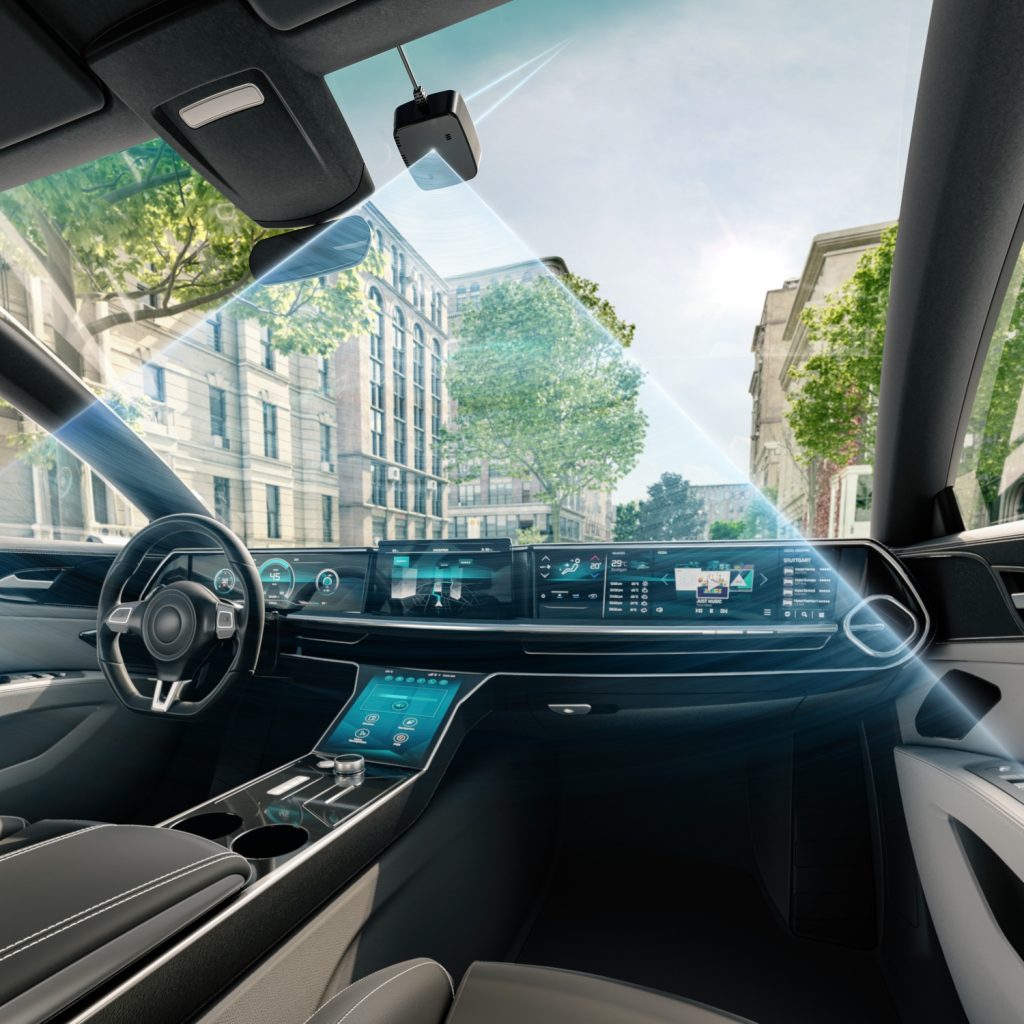
According to Bosch, people who use shared vehicles expect their car to be roadworthy and not to smell of smoke. Car sharing users find it annoying when a vehicle is scratched and dented or someone has smoked in it. To address these issues, Bosch has introduced its Ridecare solution for fleet operations and mobility service providers to ensure a safe and pleasant ride for every user.
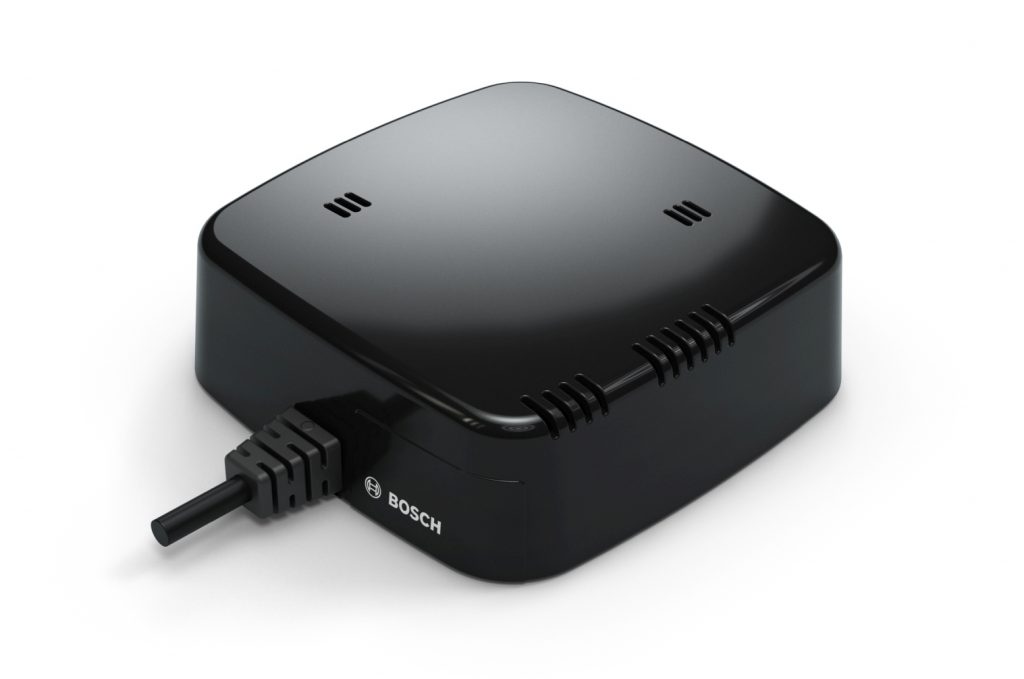
Ridecare uses a sensor box that’s installed in the vehicle and it utilises cloud-based data analysis with artificial intelligence. The sensor is installed permanently on the inner windshield of the vehicle. As an IoT device, it has built-in sensors to detect both cigarette smoke in the vehicle as well as damage to the exterior of car. Operators will be informed exactly where and when the accident happened, and when someone lights up a ciggy in the car.
According to the German company, the sensors are so precise that it not only detects accidents but also accidental damage while parking. It will also be able to know if there’s a minor collision involving a shared vehicle when it is parked and not rented out.
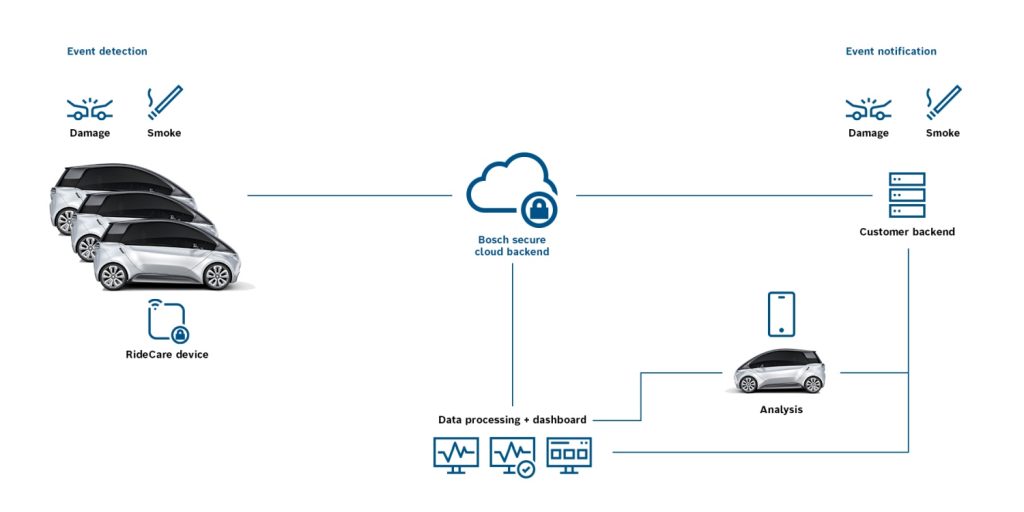
Car sharing providers will be able to receive important information in real time and they will be alerted if a vehicle requires repairs or cleaning. At the moment, it is a challenge for car sharing platforms to know which user is ultimately responsible for the smoke or damage of the vehicle during the rental period. Besides spending a lot of money to fix damages, providers have to cover the cost of professional interior cleaning to get rid of the cigarette smell.
Harald Kroeger, a member of the board of management at Robert Bosch GmbH said “In carsharing, one of the main keys to customer satisfaction is to ensure users have a safe and pleasant driving experience at all times. With its Ridecare solutions, Bosch is setting a new standard for an even better customer experience in the sharing market.”
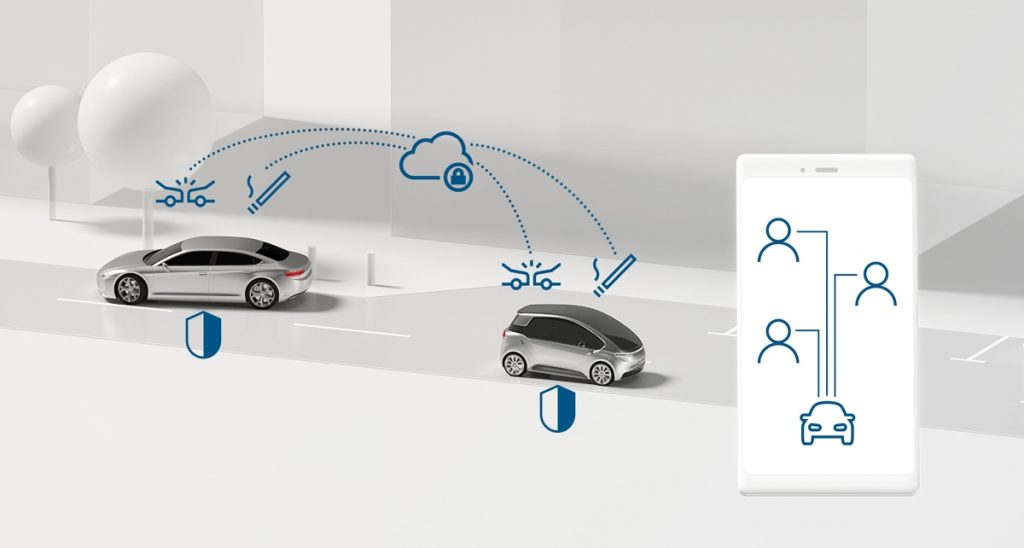
Bosch is currently working on pilot projects with leading sharing providers in Asia, North America and Germany, and it aims to launch a production version of its smoke and damage detection system. It shared that the system has received official approval from TÜV Süd including a confirmation of the reliability of these fleet services.
According to Bosch’s statement, experts predict a boom in car sharing market and the market for mobility services that replace the private car is currently worth USD 127 billion (about RM528 billion) in Europe or USD 17 billion (about RM70 billion) in Germany. It believes that a fast and transparent documentation of damage to individual vehicles in the fleet is hugely important as it is the only way for them to improve roadworthiness and to minimise downtime.
While it is great to see an IoT solution that can benefit the car sharing community, there’s still no tech solution yet to make users clean up after use. Although Socar has a rating and feedback system to report issues of the car, there’s always a few users that couldn’t return the car in good condition. Unlike a normal car rental service, the car sharing vehicles are not inspected after every booking and the community has the shared responsibility to keep the vehicles clean after each use. In 2019, Socar Malaysia revealed the top 3 items left behind by its members, and undergarments took the #3 spot.

